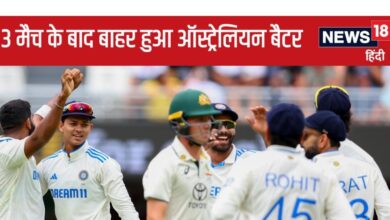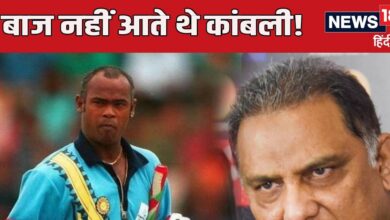1983 WC Final: They couldn’t accept the fact that they had lost to us, some of them came to our dressing room later with champagne bottles: Mohinder Amarnath recalls India’s win vs WI in 1983 WC final | Cricket News

There are multiple stories and anecdotes of course that we have all heard and enjoyed over the years about India’s incredible achievement – from complete underdogs to world champions.
A recent Bollywood movie, starring Ranveer Singh as Kapil Dev and called 83, recapped the journey of Team India in that edition of the World Cup and how they went on to beat the mighty West Indies, who had won the two previous editions in 1975 and 1979, in the final to become the champions of the world.
The legendary Mohinder Amarnath, who was the Man of the Match in the semi-final vs England (46 & 2-27) and the final vs the West Indies (26 & 3-12) in the 1983 World Cup was a guest on Times of India’s sports podcast Sportscast earlier this year, after the movie 83 had released and recalled many wonderful anecdotes about that magical journey that changed the face of Indian cricket forever and gave multiple generations that followed the belief that took India to the pinnacle of world cricket.
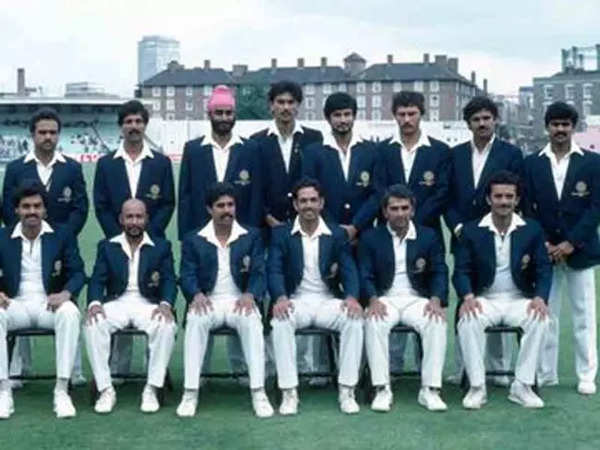
(Twitter Photo)
Excerpts from the interaction with Mohinder Amarnath on TOI Sportscast:
On India and the cricket they were playing before the 1983 World Cup:
“Before 1983 we were playing good cricket, but we were not winning anything at the highest level as such. There was probably a mindset of the people and the players that the opponents were always stronger and better and they would always look up to them. There is nothing wrong in appreciating what other talented people are doing, but don’t think that you are not as good as them. What happened in 1983 was that – I feel personally – the preparation for the World Cup was absolutely perfect for the Indian team and by then the team was also quite experienced at the international level in One Day cricket and all that came together for the Indian team. Mindset is the key. You have to have the grit and determination and belief that you can achieve something great – and that’s what happened in 1983.”
On the dream of playing a World Cup final and his parents influence on him:
“It was something every cricketer would dream of – to play in the final of the World Cup. When I was playing it was my dream to play in the final of the World Cup. Dreams are important. Before the World Cup I had seen ups and downs – been in and out of the team – I had experienced everything. I don’t forget good days and neither do I forget bad days. I think it’s very important when you are growing to remember both the good and bad days. When we are doing well in life we need to remember that the good days won’t last forever – that keeps you grounded. Parents have a huge influence on children. I get my calmness from my mother – keep smiling, dont stress, keep things simple. My father (Lala Amarnath) had a totally different personality. When I was playing I was like my father – I wouldn’t compromise. I would keep my mothers temperament, but the aggression would be that of my father.”
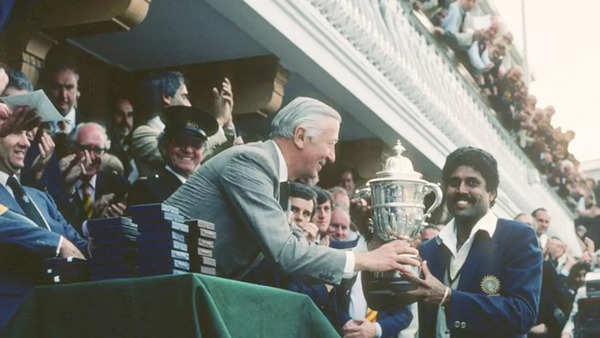
On Malcolm Marshall and his rivalry with Dilip Vengsarkar and Vengsarkar being hit by a Marshall bouncer in the June 15th encounter vs the West Indies in the 1983 World Cup:
“Malcolm Marshall was a great bowler. If you talk about 1983 – Marshall was the best in the West Indies side. They were all fantastic bowlers – Michael Holding, Joel Garner, Andy Roberts – but Marshall was a step ahead of them. He was younger, fitter and he was bowling very fast. I have played many fast bowlers in my life, but Marshall’s spell (in Indias league match vs West Indies on June 15, 1983) was unimaginable. There were no speedometers in those days to record the speeds of course. Also whenever Marshall saw Dilip Vengsarkar, it was almost as if he had an extra spring in his step. Everything about him – his run-up etc would all change. Marshall and Vengsarkar – unki kaafi pyaar mohabbat thi kaafi saalon se (laughs – Marshall and Vengsarkar had an interesting playing relationship). When you see a bowler from the non-striker’s end you notice a lot of things. I am a very observant person, I don’t miss anything. And I could tell that that day (when a Marshall bouncer hit Vengsarkar on the jaw – Vengsarkar needed 8 stitches and had to sit out the rest of the matches) he was putting in more effort than usual. He was quick anyway. He would continue his follow-through after bowling a delivery and walk all the way up to Vengsarkar just to look him in the eyes. When Marshall’s delivery hit Vengsarkar on the jaw I was at the non-striker’s end and Vengsarkar had no time (to react). That delivery was so fast it would have hit any batsman. Vengsarkar was batting well at that time (he retired hurt on 32 off 59 balls). The ball hit him and Marshall continued his follow-through. What usually happens is that when a batsman gets hit, the bowler goes up to him to see if everything is ok, but Marshal didn’t give a d**n. It was almost as if he wanted to settle a score – to show who is the boss. I still remember Vengsarkar being in pain and a piece of his flesh on the seam of the ball – it was the seam that had hit him and that always cuts deeper. Marshall removed that from the ball and walked back (to his bowling mark). Other players were around him, but Marshal wanted to show that I have come here to play, I want to show you who I am and I want to be the boss.”
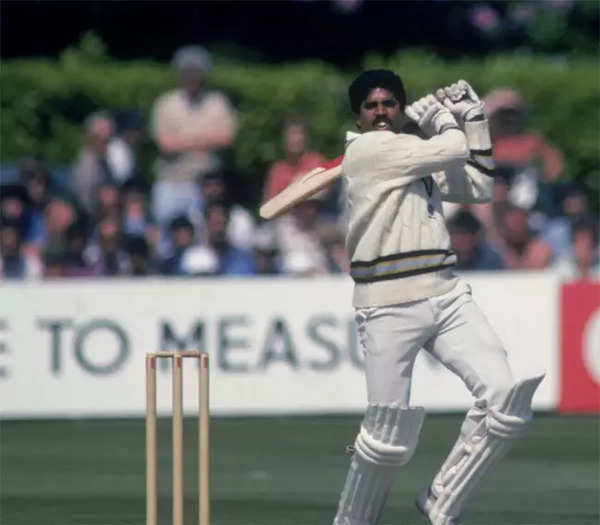
On the West Indies players’ reactions after losing the World Cup final vs India in 1983:
“They (the West Indies players) were very disappointed (after the loss vs India in the final). We were fielding and we went straight into our dressing room. They never expected to lose to India, they never thought that we (Team India) were good enough in One Day cricket – that was their mindset. They couldn’t accept the fact that they had lost to us in the final of the World Cup. That too a match played at Lord’s, in front of a full house. All the West Indian fans were 100% confident (that their team would win). Even before the match began, they felt that the final was a mere formality. We went in with a different mindset. We never planned too many things, we would leave things to individuals – we knew that everyone knew their job well. Sometimes that also helps. The West Indian players were very disappointed. I remember going into their dressing room after we had celebrated the win and the whole West Indian team was in tears – you could see their red eyes, truly. I was always very friendly with all of them and they were nice to me, even after the final. One could see that they had everything ready in their dressing room to celebrate the World Cup win – there were champagne bottles all ready for them to open. After a while some of them, not all, came to our dressing room and brought some bottles of champagne – they had the good sportsman’s spirit – that the better team won on the day. But one could tell from their faces and expressions that they did not expect that something like this (losing to India in a World Cup final) was possible. Along with completing a possible hat-trick (West Indies won the 1975 and 1979 World Cups), everyone was expecting them to win the 1983 title.”
On the mindset that mattered:
“When you played a team like the West Indies in those days – they had great fast bowlers, great batsmen, but my mindset was very simple – that you have to play with the ball, not with big names. They had four great fast bowlers, but at any given point in time only one would be bowling, not all four together. A lot of people ask – what did you think of when you played the really fast bowlers? – I would say – there’s nothing to think about – you only concentrate on playing the ball and forget everything else.”
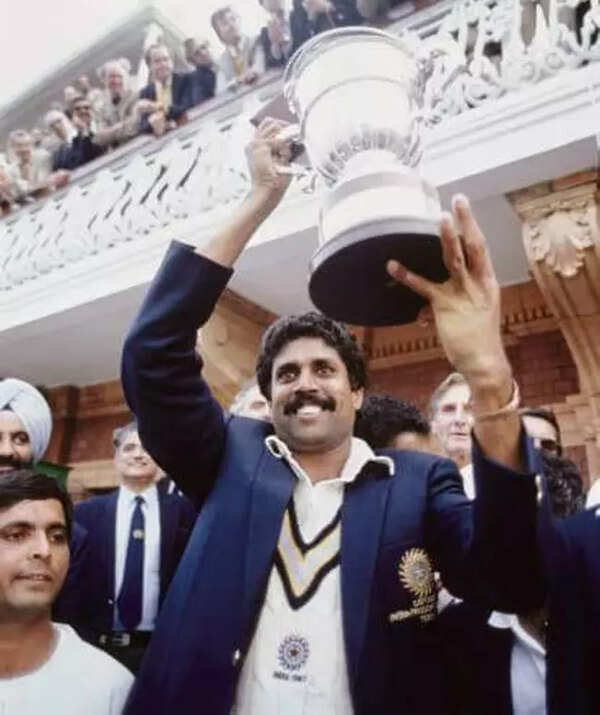
On India’s preparation for the 1983 World Cup:
We were playing some cricket in England also. After the West Indies tour there was a gap, about a month or so before the World Cup was starting. We all assembled in London. About 7 or 8 of us went from India and the rest were there (in England) and were told to assemble in London. We were underdogs, no one expected anything from us. But as a team, our preparation was terrific for the World Cup and when no one has any expectations from you, you don’t feel any pressure. That team also wasn’t used to feeling any pressure, we just lived for the day – think about the present. Yesterday was gone and we didn’t think about tomorrow because no one knew what was going to happen. That also helped, we were all very relaxed, but as soon as we crossed the boundary rope and stepped on to the field, the commitment was more than 100% from everybody. In a tournament like this you are bound to have ups and downs. Credit should be given to the selectors also – they picked the right combination. One reason for that was that many of the selectors at that time had played for India and had played in England, so they had experienced the conditions themselves – like Bishen Singh Bedi, Chandu Borde and others. So they understood the conditions etc very well.”
You can listen to the full episode of TOI Sportscast with Mohinder Amarnath HERE.


